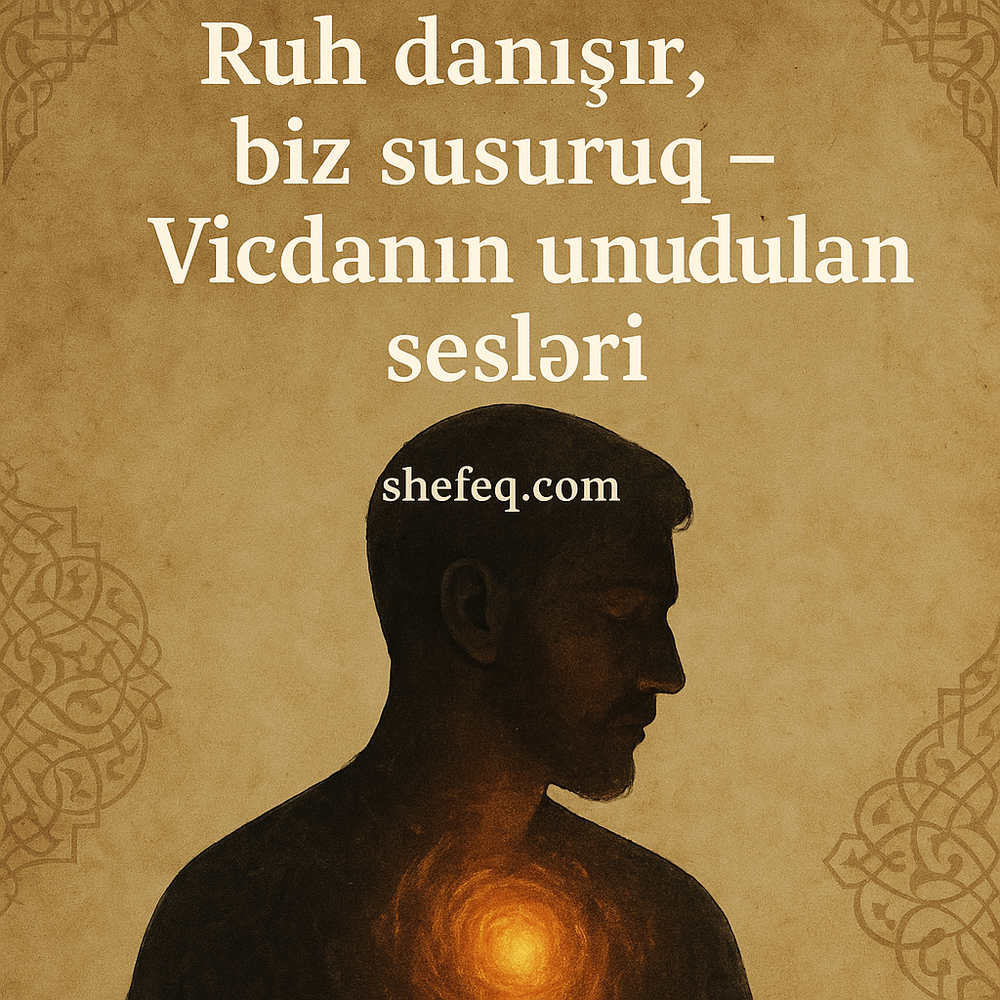Introduction: The Soul Speaks in Silence
A person speaks not just with words, but with the soul. Sometimes, silence becomes a cry louder than any voice. Conscience — that invisible voice — is the guiding light gifted to us by our innate nature. But the noise of life often drowns this delicate whisper. We speak, but the soul remains silent. And sometimes, the soul speaks, yet we do not hear.
Islam commands us to keep our inner world — our soul and conscience — constantly awake and alive. In this article, we will explore what this forgotten power of conscience truly is, how to reconnect with it, and why we are losing it in today's world.
What Is Conscience? – The Divine Inner Voice
In Islamic belief, conscience is a reflection of the human "fitrah" — our natural disposition. When Allah created mankind, He gave us a criterion — "furqan" — to distinguish between right and wrong. This internal compass speaks to us in silence, in subtle discomfort, or sometimes in powerful unease.
As the Qur’an says:
“And by the soul and the One Who proportioned it. And inspired it [with discernment of] its wickedness and its righteousness!” (Ash-Shams, 91:7–8)
Conscience is the source mentioned here — the one teaching the soul what to avoid and what to strive for. It is the side of the soul that speaks to us.
Why Do We Remain Silent? – How We Lose the Voice of the Soul
Modern life directs us more through thought than through feeling. We care about outcomes and benefits, not intentions and inner sincerity.
Stress, media noise, social molds, material desires — all mute the voice of conscience. Sometimes, we know what is right, but we search for reasons not to act on it.
And in those moments, it's not the conscience speaking — it's the nafs (the ego or lower self).
Dangerous Silence – The Result of Losing the Voice of Conscience
When conscience falls silent, our humanity begins to fade. The greatest disasters and inhumane acts in history were born of a lack of conscience.
Hypocrisy, envy, lies, hatred — they all bloom in the silence of the inner world where conscience has been silenced.
A soul disconnected from its conscience cannot fill its inner void — not with worship, not with knowledge. Because the presence of Allah is felt in the heart only through a clean and awakened conscience.
Keeping the Conscience Awake – Islamic Guidance
Islam offers tools to keep this silent guide alive:
-
Tazkiyah – Purifying the Nafs
Reciting dhikr, fasting, night prayers — all strengthen the voice of the soul. As the heart is purified, the voice of conscience becomes clearer. -
Tawbah – Repentance
The moments when conscience is silent are the moments covered by thick veils of sin. Tawbah lifts that veil. Every sincere repentance unties a knot in the throat of the soul. -
Tafakkur – Reflection and Deep Thought
Islam is not only a religion of rituals but also of thought. The Qur’an repeatedly asks: “Do you not think?”, “Do you not understand?” -
Solitude and Silence
The soul prefers to speak away from the noise. To truly connect with one’s conscience, one must learn to be alone and listen to the inner silence.
The Heart’s Silent Pulse – Living with Conscience
Awakening conscience is not a one-time act. It is a lifelong journey.
Every morning, ask again: “Why am I living today? Is my soul content?”
A person with an awakened conscience radiates light. Their eyes reflect compassion, their speech carries wisdom, and their actions embody purity. These people — even if few — are the saviors of society. Their light travels far and wide.
Conclusion: Listening to the Soul – The True Source of Life
Islam addresses not only the visible body, but also the invisible soul.
Conscience is like an inner GPS gifted by Allah — when silent, we lose our way; when it speaks, we find it again.
This article is a call: Let the soul speak again.
Perhaps the conscience you haven’t heard in years is now whispering to you as you read these lines…
A final prayer:
“O Allah, awaken the silent conscience within me. Teach my soul to speak through silence, and make me one of those servants who live with hearts sensitive to Your voice. Ameen.”

